If you are a business owner, correct and proper waste management has never been so important. In the past, waste was seen as a necessary by-product of production, but it has now become one of the biggest global, economic, social and scientific challenges of all time.
Controlling both pre-production and post-production
For businesses, there are two areas of waste management that need to be looked at in order to have an impact on waste reduction:
Pre-production waste – this is produced before and during the production process, such as:
- Over mining of resources
- Products damaged in transportation
- Unfinished products
- Replacement of production machinery
- Over production of products
- Defected or faulty products
Post-production waste – this is produced after the actual production, such as:
- Packaging a product was sold in
- Packaging used to transport goods
- Used goods
- Out of date technology
- Waste produced by the use of product
The waste hierarchy (above) is one tool that’s been used to examine ways of reducing post-production waste. Through prevention and minimisation, the hierarchy has been effective in reducing post-production waste, but has proved to be costly. For many companies this costly approach has stopped them from using the system, and ultimately reducing their waste.
Prevention is the most favoured option as not only can it save businesses money, but it also is the easiest option in the long run. Disposal is the least favourite option because it can look less organised for a business and isn’t as much of a sustainable option as preventing waste.
It’s clear that a new approach is needed. Companies need to be able to reduce waste, but in an economical way.
Try creating a ‘Circular Economy’
The term ‘Circular Economy’ means an industrial economy that is designed to be restorative – i.e. many of the aspects of manufacturing that are thought of as waste, actually become thought of as a useable by-product.
The Circular Economy looks at materials in two categories: biological and technical. Each of these materials move through the system differently – biological materials re-enter the biosphere safely, whilst technical materials circulate in the system indefinitely without entering the biosphere. Take a look at the infographic below for an overview of this process.
The Circular Economy system results in very little landfill. By re-using, refurbishing, and recycling materials as commonplace, the cost of materials is also reduced.
We talked to Joshua Balmer – MSc at the University of Central Lancashire’s Centre of Waste Management about the advantages of a Circular Economy, he said:
“Disposal should be a last resort in most cases, particularly if you’re manufacturing. It isn’t always possible to avoid waste, but it’s becoming more commonplace to reintroduce what was previously thought of as waste back into your production process. There are always direct cost savings and environmental benefits to be found here and we are likely to see more used products becoming available as new through refurbishment. An example would be ball bearings: they largely lose very little of their overall effectiveness during a product’s lifetime, but are then lost to waste when the product is disposed of.”
The benefits of waste management systems
The United Nations’ Environmental Programme ‘Guidelines for National Waste Management Strategies Moving from Challenges to Opportunities’ describes the benefits of a waste management system as:
Waste is not something that should be discarded or disposed of with no regard for future use. It can be a valuable resource if addressed correctly, through policy and practice. With rational and consistent waste management practices there is an opportunity to reap a range of benefits. Those benefits include:
1. Economic – Improving economic efficiency through the means of resource use, treatment and disposal and creating markets for recyclable products can lead to efficient practices in the production and consumption of products and materials resulting in valuable materials being recovered for reuse and the potential for new jobs and new business opportunities.
2. Social – By reducing adverse impacts on health by proper waste management practices, the resulting consequences are more appealing settlements. Better social advantages can lead to new sources of employment and potentially lifting communities out of poverty especially in some of the developing poorer countries and cities.
3. Environmental – Reducing or eliminating adverse impacts on the environmental environment through reducing, reusing and recycling, and minimizing resource extraction can provide improved air and water quality and help in the reduction of greenhouse emissions.
4. Inter-generational Equity – Following effective waste management practices can provide subsequent generations a more robust economy, a fairer and more inclusive society and a cleaner environment.
A Circular Economy is not only designed to accommodate every single one of these points, but it can reduce your business waste and your costs too. By implementing a Circular Economy system that focuses on reducing pre-production waste, you’ll cut post-production waste and so reduce your business’ impact on the environment while improving your bottom line.
Waste Management – what it means to Rajapack
Simon Howes (Head of Logistics) at Rajapack UK states: “The issue of waste recycling is at the forefront of government and local authority priorities, simply getting rid of waste in landfills is not good enough. Waste prevention is based on a simple concept. If you create less waste, you consume fewer resources and you will have to spend less effort (e.g. money, energy) to recycle or dispose of your waste”.
“Recycling is a noble task but definitely not so favourable amongst all employees. In general, environmental issues have become more important to more people. You can tell in the last few years there is more natural concern over this topic with our own employees now openly asking questions. However, the initial education of a team to identify the different streams of waste and separating them is a task harder said than done and some will even ignore it after implementation. “
“Many people lack the knowledge of the impact this has on future generations. In addition many people won’t think too much of it until they feel the effects which will take some time. It must also be noted that there is still also a factor of “Cannot be bothered” or “It’s a minefield”. This simply is not the case, in reality how hard can it be to separate food, cardboard, plastic, tins etc. There is of course an initial outlay on the purchase of bins in order to separate and a call to a waste carrier should see you set well on your way. “
Simon went on to say that “Ignoring waste recycling potentially incurs loss”. “With cardboard and plastic rates at a high, there are obvious rewards for recycling waste”.
“At Rajapack we currently have two baling machines. One of which produces mill sized bales of cardboard and the second is a twin baler used for plastic (stretch wrap, plastic straps etc). Both are utilised pretty much all day and each operative is trained on the apparatus to comply with Health and Safety. All materials are separated on arrival and taken to the recycling area ready for baling. Any other materials are collected throughout the day. “
Simon concludes “Ultimately, a total prevention of waste to zero will result in a society with no waste at all and thus waste management would be obsolete. In practice our societies are far away from a status of no waste and it is also evident that, in theory, a complete avoidance of waste is impossible. Therefore we must all try to help; after all, you could be missing out on small or large rebates. At the very least, you get the sense that you’re doing something to make a difference!”







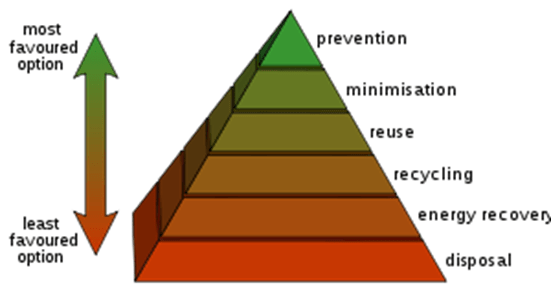






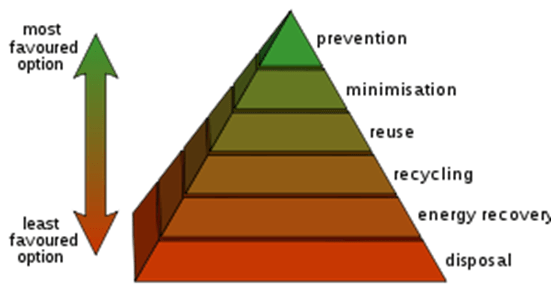
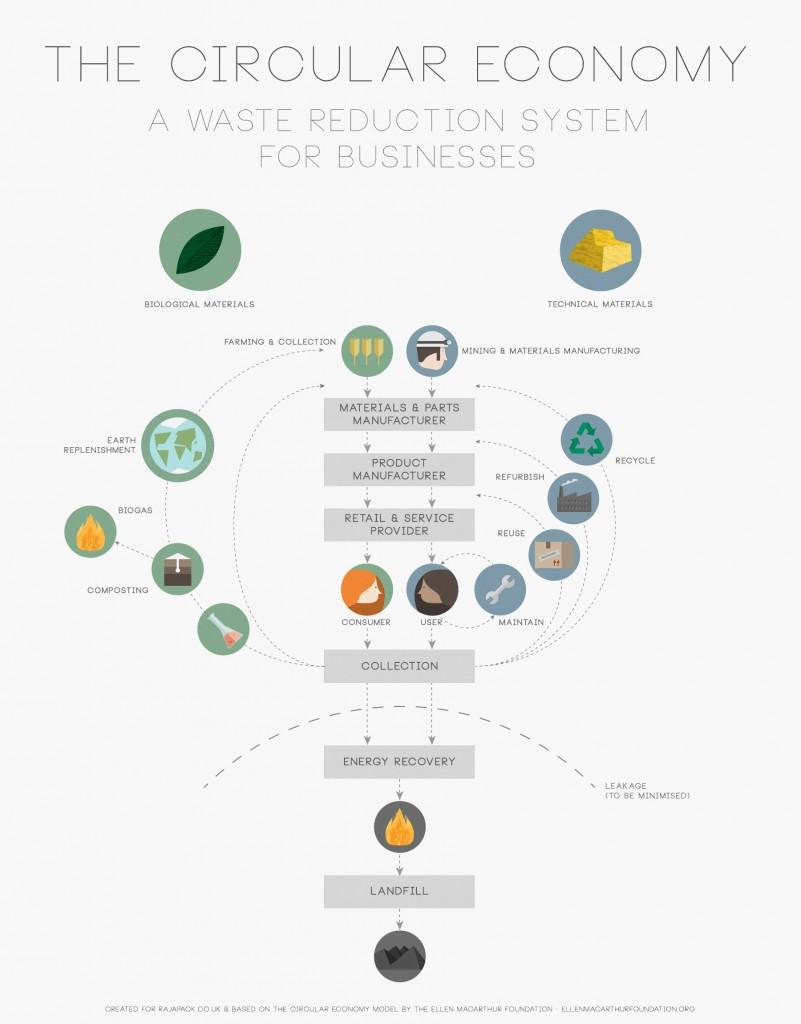
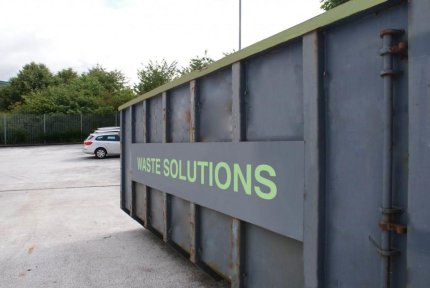
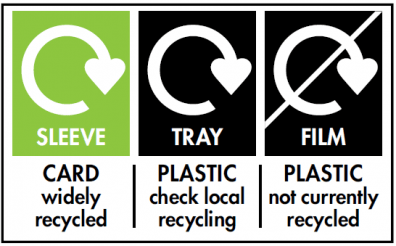



Great article about reducing office waste, thanks for sharing. I have been looking for an article that discusses this for a client who has been asking for this information. I will be forwarding a link to this article to my client. I hope the links to your site will help your business 🙂
Businesses deal with profit, success and development; I am sure they will understand the long term benefits of recycling as a innovative concept. Thanks for sharing the details about waste management and their significance for businesses 🙂